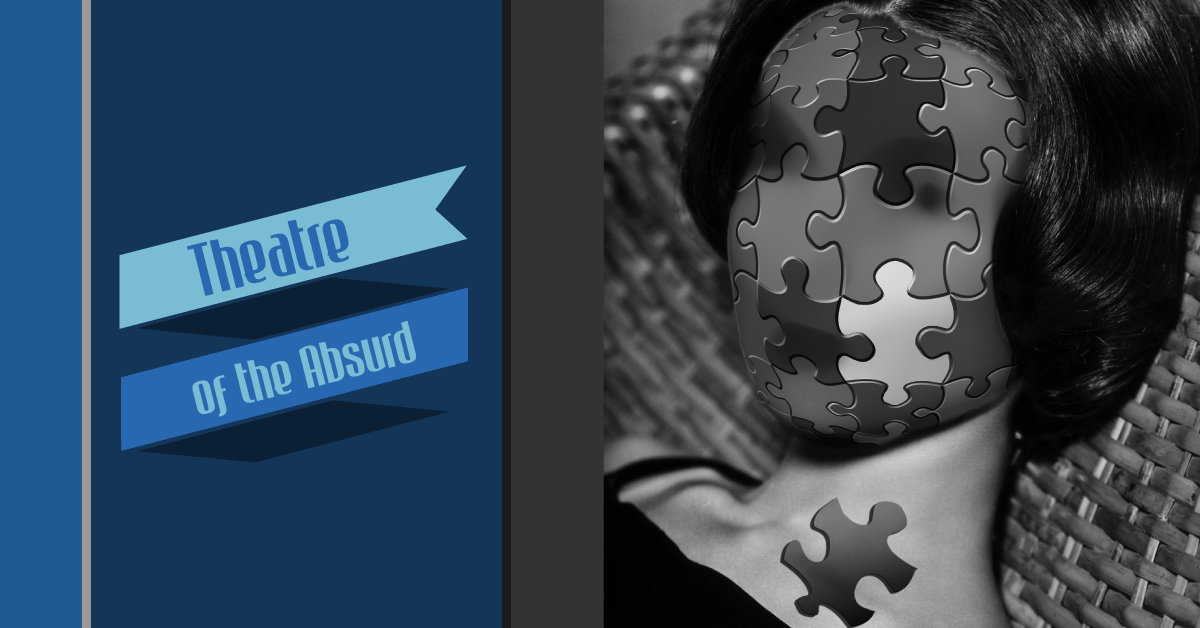Life is Meaningless: Theatre of the Absurd
How do we connect students with theatre history eras that are difficult to relate to?
Theatre is all about change. Not only do we want to look back and identify origins, but it’s important to explore theatre history to see how the form evolves. Often that evolution comes from an intense reaction to the previous era: the spectacle of Romanticism transformed into the mundane of Realism.
But how do we connect students to eras that are difficult to relate to? It’s easy to say “XYZ is important,” but if students don’t find a connection with it then the impact is lost.
For example: Theatre of the Absurd.
The Theatre of the Absurd (in a very brief and generalist overview) covers plays written mostly in the 1950’s and 1960’s with the main theme “life is meaningless.” To that end, traditional theatrical structure is often ignored, dialogue makes no sense, and characters are not grounded in reality. The playwrights most commonly associated with this era are Samuel Beckett, Jean-Paul Sartre, Eugene Ionesco, Jean Genet, and Harold Pinter. Some of the well-known Theatre of the Absurd plays are Beckett’s Waiting for Godot, Sartre's No Exit, Genet’s The Balcony, Ionesco’s Rhinoceros & The Bald Soprano, and Pinter’s The Homecoming.
It’s hard for students to link the theme “life is meaningless” with what they see in a Theatre of the Absurd play. They know that what they see on the page doesn’t make sense. But they often can’t make the connection that the reason it doesn’t make sense is because it explores a specific theme. They just think the play dumb.
One way to connect students is to start with a visual introduction to an era instead of textual introduction. 21st century students tend to be visual learners, so use images to initiate a discussion. How do we do that?
Most of those who wrote Theatre of the Absurd plays were in Europe during WWII – both Samuel Beckett and Ionesco were in France.
If you search online for what France looked like during the war, what comes back are a lot of pictures of towns reduced to rubble. A total wasteland (a sample picture is included in the PDF download below).
When you start with an image that clearly defines “life is meaningless,” it becomes easier to see what influenced these writers. It becomes easier to see how they rejected the Realism Era plays. As much as Realism Era writers wanted to create “real life” on stage, it wasn’t real life. Theatre is a form with structure, dialogue, and characters, and this is what Theatre of the Absurd writers highlight by going in the opposite direction.
Exercise:
- Show students a picture. Use the one included in the download or find your own. Don’t give students context for the picture – don’t tell them where the picture comes from, the time period or talk about Theatre of the Absurd.
- Discuss the picture: What do you see? Where is this place? What emotions come up? What happened here?
- Have students write a Reflection: Imagine what it would be like to live in the place shown in this picture.
- Discuss the phrase “life is meaningless.” If you were writing a play, how might you show this theme? What could you do to the structure, dialogue, and characters of a play to highlight the “life is meaningless” theme?
- Show students an example of a Theatre of the Absurd text.



